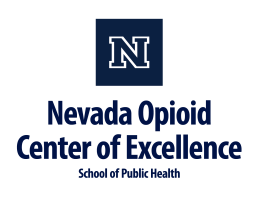This collaborative training brings together experts from across Nevada to explore the complex landscape of human trafficking throughout the state. Presenters will highlight the realities and regional nuances of trafficking in urban, rural, and campus communities, while addressing the frequent intersection with opioid use and substance dependency. Topics include recruitment tactics, legal context, trauma-informed response, and victim advocacy. Participants will gain a deeper understanding of how trafficking operates in Nevada and what communities can do to identify, prevent, and respond to exploitation.
Learning Objectives:
By the end of this training, participants will be able to:
- Recognize the signs and indicators of both labor and sex trafficking across urban, rural, and campus communities in Nevada.
- Understand how opioid use and other forms of substance dependency are leveraged by traffickers to recruit and control victims.
- Identify common recruitment tactics, grooming methods, and psychological manipulation used in trafficking situations.
- Interpret relevant Nevada laws related to prostitution, pandering, and sex trafficking, and their application in real-world cases.
- Apply trauma-informed screening and support strategies for individuals at risk or with lived experience of trafficking and substance use.
- Connect with local and statewide resources for coordinated prevention, intervention, and recovery support.
Presented by:
- Caspian Matheus, MSW, RISE Outreach Director, Signs of HOPE
- Brenda Sandquist, Executive Director, Xquisite
- Jhenna Strasser, Southern Nevada Human Trafficking Task Force Manager, Las Vegas Metropolitan Police Department, Safe Neighborhoods Bureau
- Faith Syfrett, Police Detective, Human Exploitation and Recovery Operations Unit, Crisis Negotiator, University Police Services
Continuing Education Units: 2 CEUs
This training is approved for continuing education by the boards listed here.
This training is also approved by the Nevada Certification Board for the following certifications:
- Peer Support Specialist (PRSS) and Peer Support Specialist Supervisor (PRSS-S)
- Community Health Worker (CHW)
- Certified Prevention Specialist (CPS)
- Birth Doulas
Funding for this activity was made possible in whole or in part by the Nevada Department of Health and Human Services (DHHS) Director’s Office through the Fund for a Resilient Nevada, established in Nevada Revised Statutes 433.712 through 433.744. The opinions, findings, conclusions, and recommendations expressed in our courses are those of the author(s) and do not necessarily represent the official views of the Nevada Opioid Center of Excellence or its funders.

